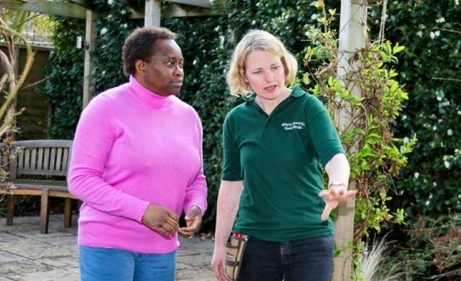
Organic gardening requires a lot of patience and talent. It is a good way to grow healthy fresh foods in an environmentally friendly, chemical-free way. It might sound easy, but is it? If you want to have the most professional gardening skills you can, read the tips in this article.
Include your kids in growing an organic garden. Gardens are a wonderful place for kids to learn, and working side by side with them can strengthen the bond that you have.
If you have plants inside, make sure the thermostat stays between 65 and 75 degrees. In order to encourage proper growth, they will need that warmth. If you don’t want you house to be really warm during the cold season, you could use a heat lamp on organic plants instead.
Have some plastic bags on hand that you can put over your gardening shoes if they are muddy. This helps you stay in the zone so that you can continue gardening when you have completed your tasks in the house.
The space you leave in between your plants is an important measurement when it comes to gardening. It’s common to not think about how much space a plant will need once it’s full grown, and you don’t want to crowd your garden. The plants need space due to sheer size and also for air circulation. Plot out all of these considerations before putting that first seed in the ground.
Use equal parts of green and dried plant material in your compost pile. When you pull weeds from your garden, throw them in the compost. The same goes for vegetable trimmings and grass clippings. These are considered green materials. Dried plant matter, on the other hand, includes shredded paper, used wood chips and straw. Never use ashes, meat, charcoal, diseased plants or carnivorous animal manure in your compost pile.
If you are starting your seedlings out in small containers, you should use a layer of potting soil that is three times as deep as the size of a single seed. But, is important to realize the some seeds ought not be covered, as they need complete exposure to sun. Example of these kinds of seeds include the petunia and the ageratum. If you are unsure if your seeds should be covered, refer to the seed packet, or if that is not available, look for information online.
An organic gardener enjoys the benefits of working with nature, producing wonderful food through hard work and patience. This wonderful past time uses land to produce delicious foods for your table. By using these tips and giving some effort, you can be a skilled organic gardener.

